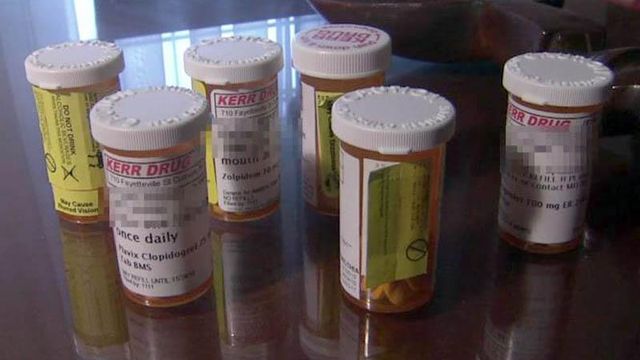Rebate checks take bite out of Medicare 'donut hole'
The federal government began mailing $250 checks Thursday to senior citizens who fall into the gap in Medicare coverage of prescription drug costs commonly known as "the donut hole."
Posted — UpdatedThe rebates are the first tangible benefits from the national health care reform law President Barack Obama signed in March, and about 120,000 seniors in North Carolina will qualify for a check.
People who have Medicare Part D prescription-drug coverage pay 25 percent of the cost of their medications until the total cost hits $2,830 for the year. Then, they are on the hook for all of the cost until the total hits $6,440, at which point Medicare picks up 95 percent of the cost for the rest of the year.
Mary Watkins, 68, had a small stroke in 1998, and she now takes a brand-name blood thinner and five other prescription drugs. Her monthly bill for medications is about $400.
Watkins said she expects to fall into the "donut hole" this summer, and she is eager to receive her rebate check to help pay for some of her health care costs.
"You have to take the medicine if you want to keep your health going," she said.
The government will mail rebates monthly to seniors as more of them hit the coverage gap. Beginning next year, the health reform law will provide additional prescription discounts for seniors – 50 percent on brand-name drugs and 7 percent on generics – and it aims to close the "donut hole" by 2020.
"Anything we can do to lower drug costs is going to be a positive thing for seniors," said Bill Wilson, AARP's associate director in North Carolina.
But Frank Sloan, the J. Alexander McMahon Professor of Health Policy and Management and Professor of Economics, in the Sanford School of Public Policy at Duke University, said the rebates don't address the real problem of high prescription drug costs or the future of Medicare.
"In terms of a healthy policy fix, it does nothing. It's zero," Sloan said. "How do we finance (Medicare) in the long run?"
• Credits
Copyright 2024 by Capitol Broadcasting Company. All rights reserved. This material may not be published, broadcast, rewritten or redistributed.





